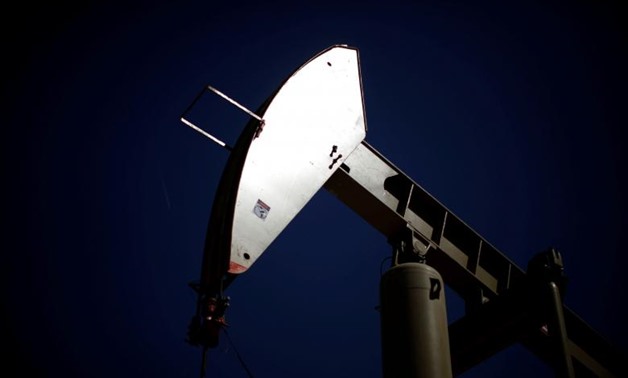
A pumpjack brings oil to the surface in the Monterey Shale, California. REUTERS-Lucy Nicholson
SINGAPORE - 4 September 2017: Oil prices fell on Monday after a powerful North Korean nuclear test explosion triggered a flight of investors away from crude markets and into gold futures, which are seen as a safe haven.
Brent crude futures LCOc1, the international benchmark for oil prices, fell by around 1 percent from their last close, or 51 cents, to $52.24 per barrel by 0631 GMT.
The fall came as traders were nervously eying developments in North Korea, where the military conducted its sixth and most powerful nuclear test over the weekend. Pyongyang said it had tested an advanced hydrogen bomb for a long-range missile, prompting the threat of a “massive” military response from the United States if it or its allies were threatened.
This put downward pressure on crude as traders moved money out of oil - seen as high-risk markets - into gold futures XAU=, traditionally viewed as a safe haven for investors. Spot gold prices rose for a third day, gaining 0.9 percent on Monday.
U.S. West Texas Intermediate (WTI) Clc1 crude futures were more stable, at $47.28 barrel, close to their last settlement.
Traders said that the more stable U.S. crude prices were a result of production outages following Hurricane Harvey.
About 5.5 percent of the U.S. Gulf of Mexico’s oil production, or 96,000 barrels of daily output, remained shut on Sunday, the federal Bureau of Safety and Environmental Enforcement said.
At the same time, refineries that use crude to make fuel were gradually starting up again, along with the pipelines transporting products.
“Traders are hopeful that crude backlogs will be cleared,” said Jeffrey Halley, senior market analyst at futures brokerage OANDA.
Meanwhile, U.S. gasoline prices RBc1 slumped back from a spike after the release of emergency fuel stocks and on signs that the damage from Hurricane Harvey to the Gulf coast energy infrastructure was not as bad as initially feared.
Still, many analysts say it could take months before the U.S. petroleum industry fully recovers from Harvey, and Texas Governor Greg Abbott estimated damage at $150 billion to $180 billion, calling it more costly than Hurricanes Katrina or Sandy, which hit New Orleans in 2005 and New York in 2012.
Storm Harvey made landfall along the Gulf coast of Texas and Louisiana last week, knocking out almost a quarter of the entire U.S. refining capacity, causing a price spike and supply gap for fuels like gasoline, which traders around the world have been scrambling to fill.
Overall trading activity in oil futures market is expected to be low on Monday due to the U.S. Labor Day public holiday.

Comments
Leave a Comment